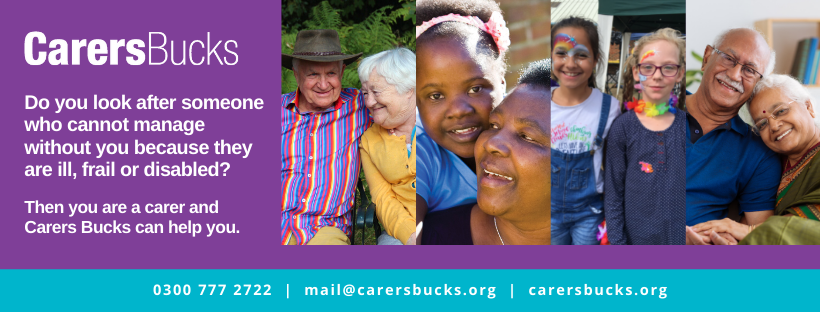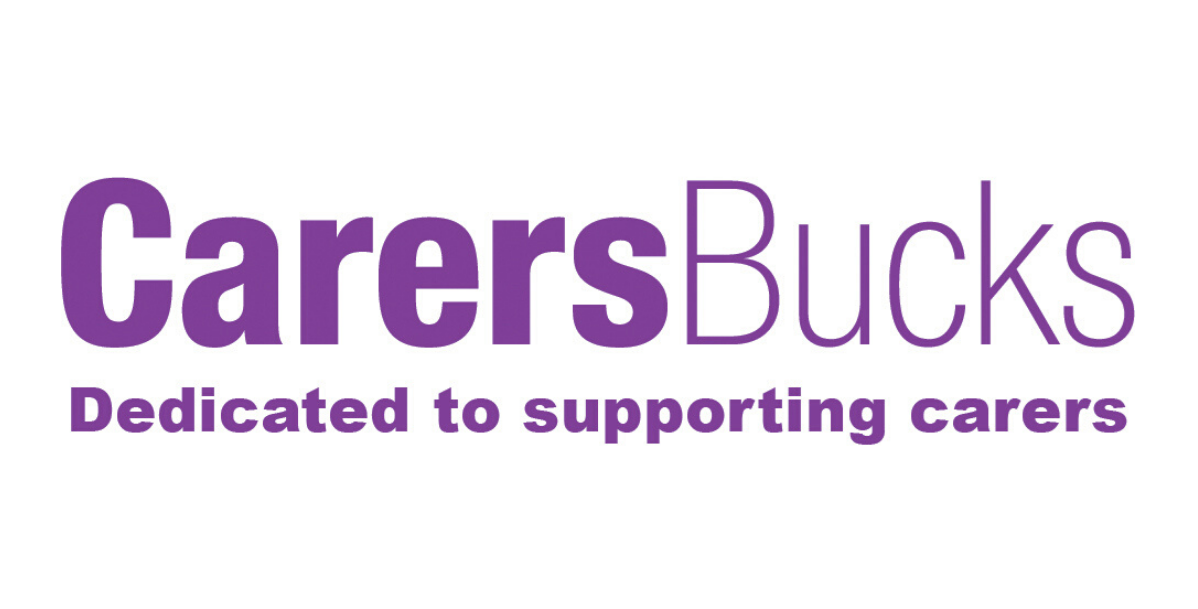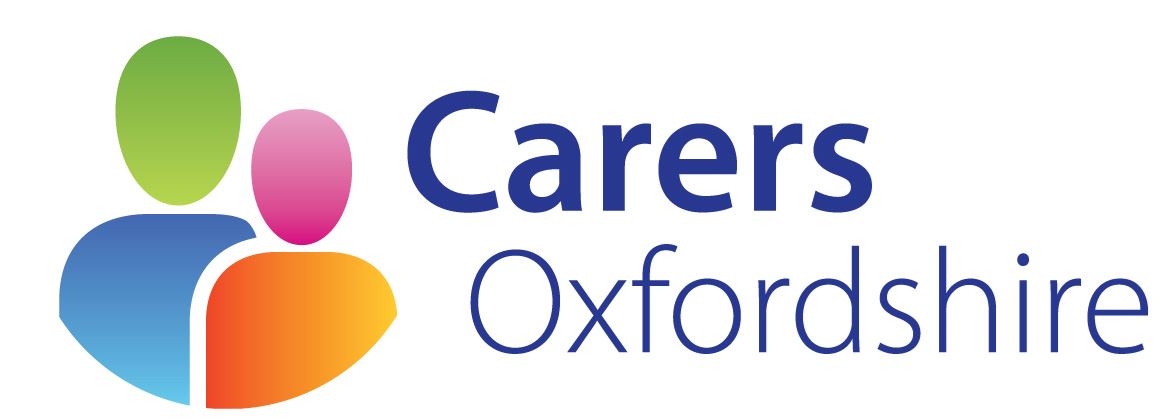Information for Carers

Are you looking after someone who cannot manage without you because they are ill, frail or disabled?
It is important we are made aware that you are a carer to ensure you receive access to information, services and the help that is available. We know that carers are often “hidden” looking after a family member or helping a friend or neighbour with day-to-day tasks and may not see themselves as a carer. If you are a carer please make us aware either by telling the clinician when you next see them or telling reception.
A carer is someone who, unpaid, looks after a partner, child, relative, friend or neighbour because they have a disability or illness, have poor mental health, are frail or have an addiction. If they rely on you for support, you are a carer. A carer does not need to be related to, nor living with, the person they are caring for. The person you care for does not need to be a patient with us.
Carers Bucks
Carers Bucks is a free service for unpaid carers in Buckinghamshire. They support the wellbeing of carers of all ages and in different caring roles. They can help with finances and benefits, creating an emergency plan, give access to support groups and provide an expert listening ear. For many carers, the time when your life changes and you are no longer a carer can be the most difficult.When a caring role ends through bereavement, there can be a range of practical issues to face as well as the feelings of loss and bereavement. These can include:
- financial issues
- paying for funeral costs
- how to deal with the practical matters of a death
- lack of confidence and feelings of isolation
- returning to work
Carers Bucks will still consider you a carer even though the person you care for has moved into residential care – it is just that your caring role has changed. You are still able to access our services, support groups and training.If you have been bereaved, Carers Bucks will continue to support you for 12 months after the bereavement, during which time our staff will be available to offer advice, information and emotional support.
You can speak to an experienced Support Worker in confidence, either over the telephone 0300 777 2722; by email at mail@carersbucks.org; or by appointment at their office in Aylesbury. You can also self refer via their website or speak to a member of Cross Keys Practice staff who can refer on your behalf.
Carers Oxfordshire
Carers Oxfordshire is a free service which offers information, advice and support to anyone over 18 looking after another person aged 18 and over who could not manage without this help, in Oxfordshire. They can help with finances and benefits, creating an emergency plan, give access to support groups and provide an expert listening ear. You can speak to an experienced Support Worker in confidence, either over the telephone 01235 424715; by email at carersinfo@carersoxfordshire.org.uk You can also self refer via their website or speak to a member of Cross Keys Practice staff who can refer on your behalf.
http://www.carersoxfordshire.org.uk
Useful links
Respite care means taking a break from caring, while the person you care for is looked after by someone else. It lets you take time out to look after yourself and helps stop you becoming exhausted and run down. There are lots of respite care options. They range from getting a volunteer to sit with the person you look after for a few hours, to a short stay in a care home so you can go on holiday. The person you look after could go to a day care centre. Or, a paid carer could visit them at their home to look after them.
There are lots of options when it comes to making sure your housing is functional and appropriate. Residential and nursing homes are available which can reduce the stress of looking after your health and care. This may help you focus on other things, like your social life and general wellbeing. If this option is not suitable there is help available to adapt your home, enlist the help of a paid care worker.
You might not think of yourself as a carer. But you probably are if you're looking after someone regularly, including your spouse or a family member, because they're ill or disabled. As a carer, you may be entitled to one or more state benefits to help you with the costs.
Benefits for the person you care for
They might be able to get Personal Independence Payment (PIP) if they need extra help because of an illness, disability or mental health condition.
Buckinghamshire Care Services Directory
For information on care providers and care homes in Bucks, read the Buckinghamshire Care and Support Services Directory.
Page created: 03 June 2021

